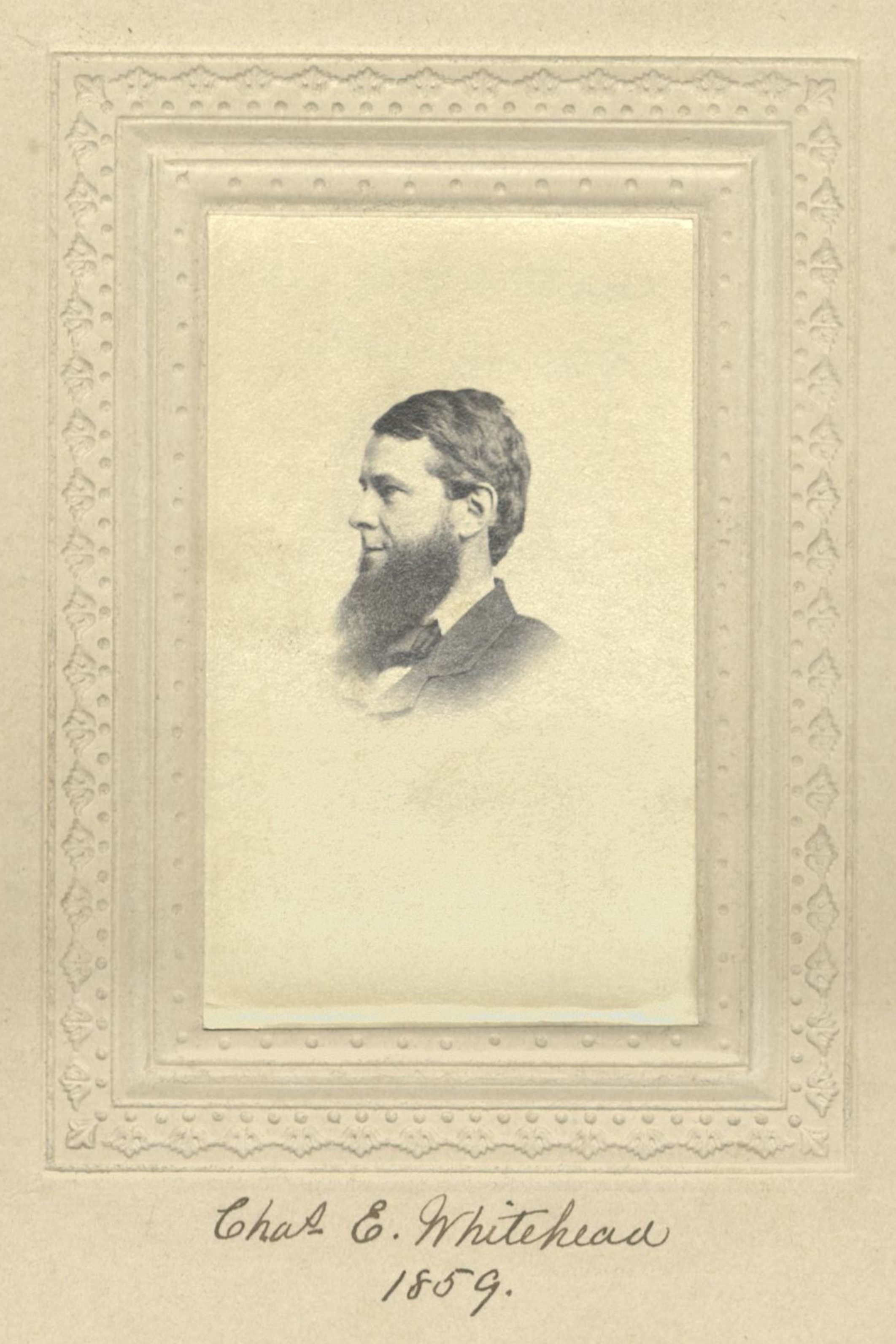Lawyer/Trustee
Centurion, 1859–1903
Born 4 July 1828 in Hopewell, New York
Died 21 March 1903 in Aiken, South Carolina
Proposed by William M. Prichard
Elected 4 June 1859 at age thirty
Proposer of:
Seconder of:
Supporter of:
Century Memorial
If there can be a typical Centurion in an association where the types are so many, Charles Edward Whitehead might be so regarded. Membership of over forty years with its subtle interplay of influence from the individual to the Association and from the latter to the former contributed to this result, until those of us whose privilege it was to know him even slightly felt the tie that bound us. The occupations that engaged his energy and interest during his long and active life were of the sort that enrich and do not exhaust a nature like his. He was strong and efficient in his profession of the law, devoted generously and steadily to practical philanthropy, a sportsman with the intelligence and foresight of the scientist, an eager student, and a writer with a field and a style peculiarly his own.
Among the institutions of value in the life of the city to which Mr. Whitehead rendered especial service are the Union League Club, of which he was one of the founders; the Children’s Aid Society, of which he was Vice-President; the Young Men’s Christian Association, the Museum of Natural History, the New York Zoölogical Society; and to these must be added the State Association for the Preservation of Game. Of this admirable organization he was one of the chief founders and for a long time one of its leading spirits, having a large share in shaping the policy that has had such solid and beneficent results. A keen and expert sportsman, enjoying to the utmost the pleasures yielded to the master of the rod and gun, his deepest interest was in the study of nature and life to which sport was the fortunate guide. His volume entitled, The Camp-Fires of the Everglades; or, Wild Sport in the South, written in the early fifties and sumptuously reproduced in 1891, showed the intellectual force and the refined sympathy that he brought to his favorite pursuit. It has become a classic in the literature of its kind.
Edward Cary
1904 Century Association Yearbook

